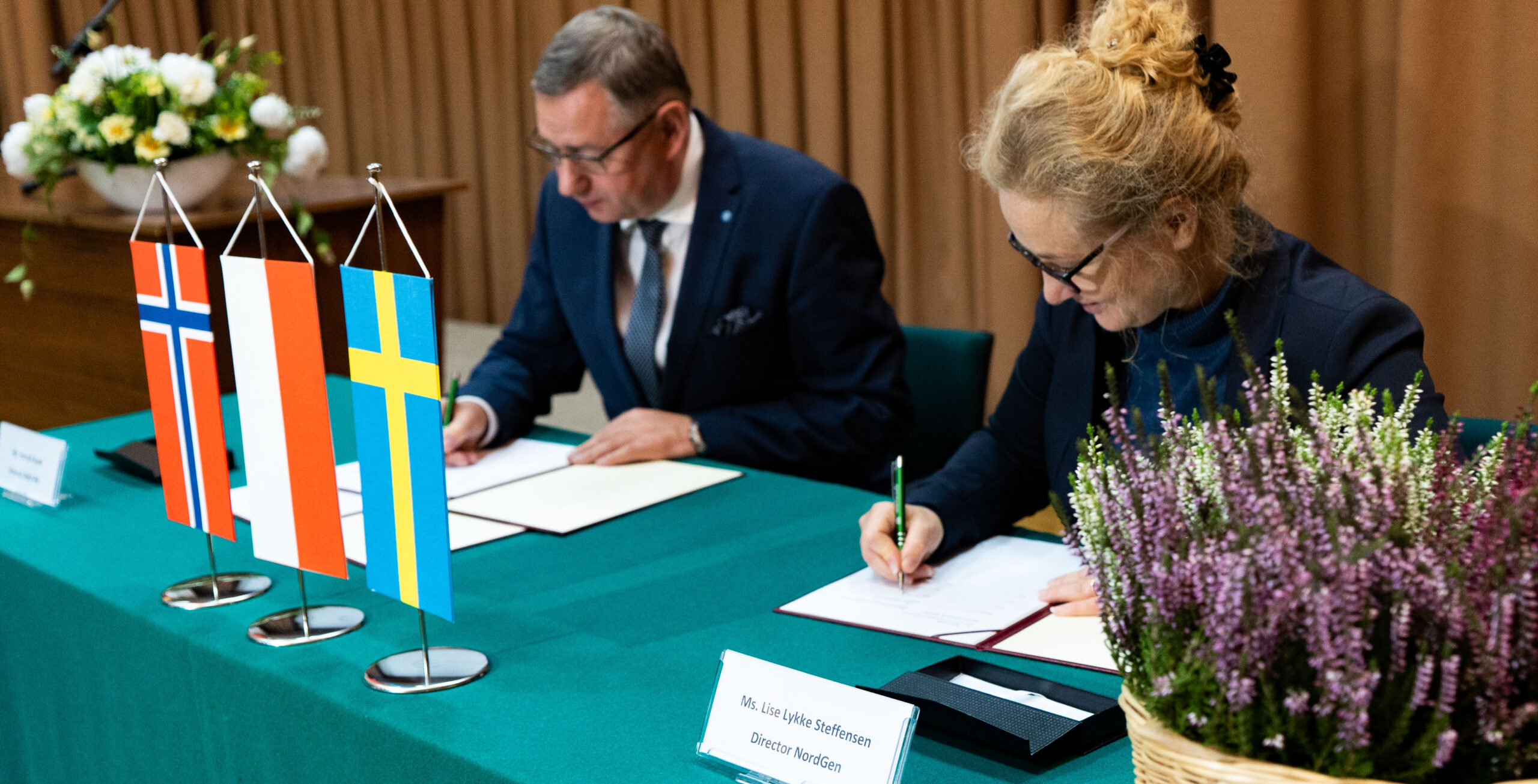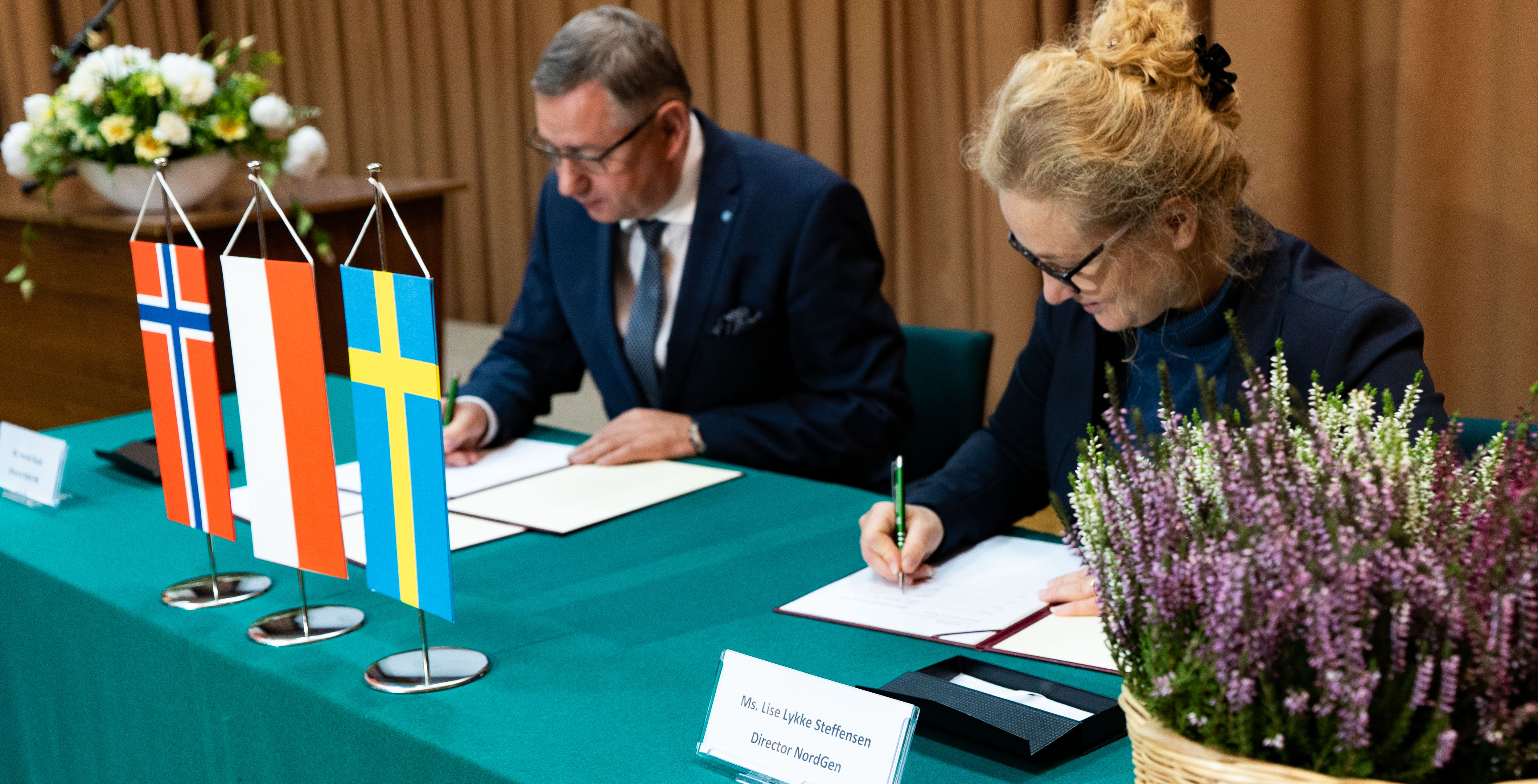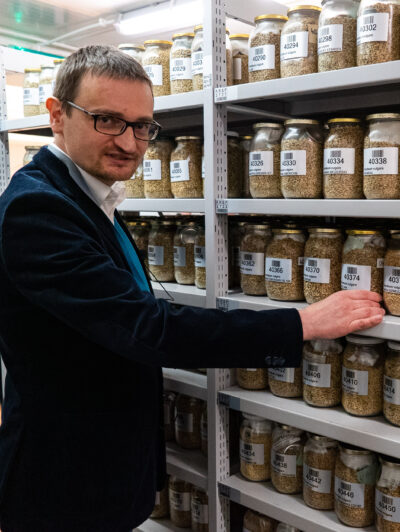

It’s taken Poland more than ten years to come to this day. Seeds have been multiplied by dedicated curators in different areas of the large country and finally, Professor Henryk Bujak, Director of IHAR could sign the depositor’s agreement and thus enabling Polands national genebank, the National Centre for Plant Genetic Resources, to send duplicate seeds from their collection to Svalbard.
Grzegorz Gryziak, Manager of Seed Storage, was content. “This is a great moment for us. It is a new chapter in the history of protecting plant genetic resources in Poland”, he said.
The National Centre for Plant Genetic Resources coordinates the work done by curators throughout Poland, aiming at conserving genetic variability of crop plants endangered with genetic erosion. At its premises at the Plant Breeding and Acclimatization Institute (IHAR) in Radzików, near Warsaw, the Centre stores seeds in both active and base layer.
Can’t forecast the dangers
The most important reason for genebanks to send seed duplicates for long-term storage in the Seed Vault is the risks of something happening to their active and base collections of seeds. The Polish genebank is not at risk when it comes to rising sea levels or earthquakes. But there are other threats and the need for backing up the Polish seed collection is urgent.

“We can’t forecast all the dangers that might affect us. That’s why we need to back up our seeds. Because it’s better to be safe than sorry” Grzegorz Gryziak said.
Earlier this year, IHAR was peer reviewed by genebank colleagues from Spain and the Netherlands as part of a pilot project. Among the recommendations given, IHAR was advised to expand their base collection as well as create safety duplicates of their seeds.
“Our genebank is the second largest in the European Union. We have over 75 000 accessions, which also makes us the 17th largest genebank in the world. So, it was high time for us to secure our seed collection in a good way”, said Grzegorz Gryziak.
Drought a growing problem
As most genebanks, the Polish Centre observes the effects of climate change and realizes how the problems makes the conservation of plant genetic resources even more important. In Poland, drought is a growing problem, particularly in the spring and in the autumn.
“We have to look for varieties that can resist the new harsh conditions that we can expect in the future. It’s matter of our safety in the face of climate change. And it also makes it even more important to send seeds for long-term storage in Svalbard Global Seed Vault”
The first seed deposit from the IHAR genebank contains 406 seed samples of cereals. About one third is barley and related species, another third wheat and related species and the last third is rye, in total 30 different species.
“More comprehensive seed deposits from IHAR will be sent to the Seed Vault during the coming years” Grzegorz Gryziak said.
